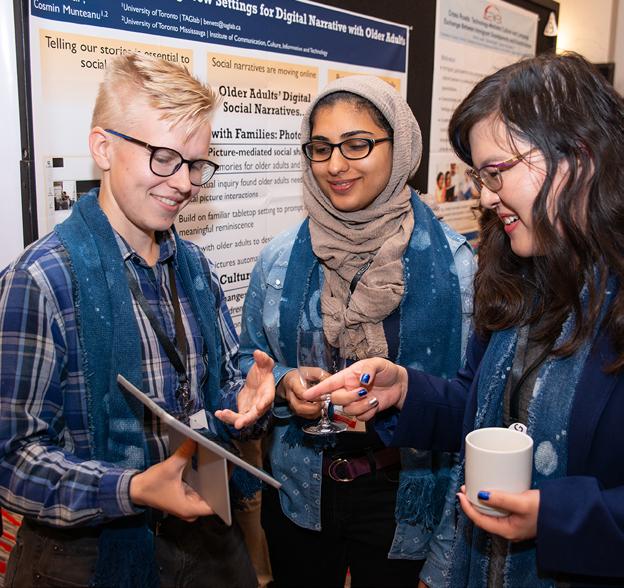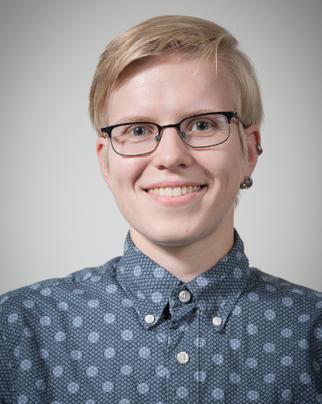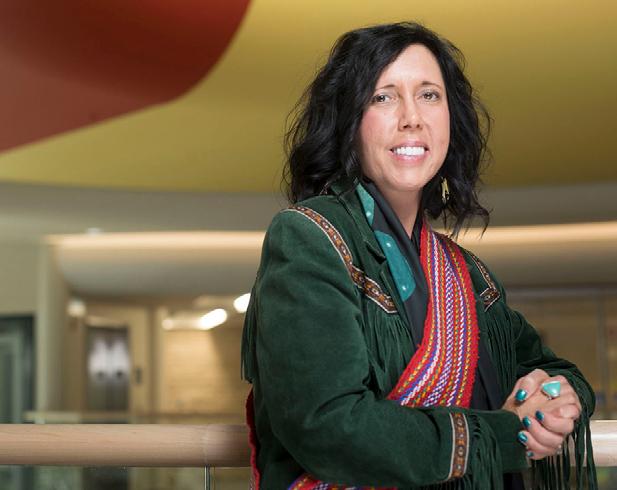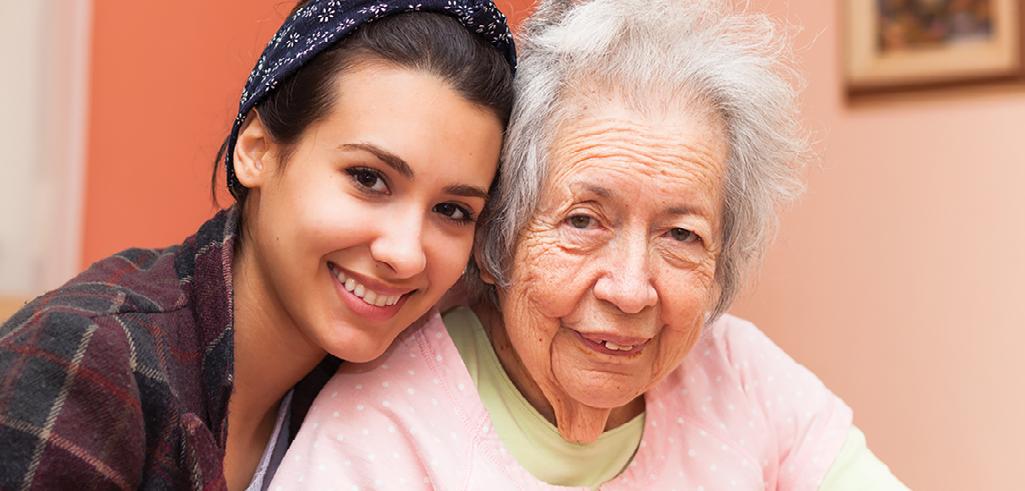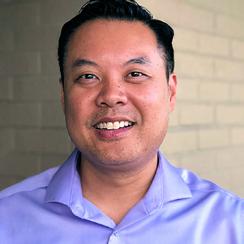
6 minute read
TRAINING THE NEXT GENERATION
“The value of the EPIC training program cannot be overstated. It provided me with an opportunity to incorporate activities from other disciplines, new approaches and a whole new community. ” Dr. Aki-Juhani Kyröläinen, postdoctoral fellow, McMaster University and Brock University, and recipient of an AGE-WELL-MIRA training award
AGE-WELL’s unique training program is a great success story. Across Canada and beyond, we champion emerging researchers and young professionals known as HQP—or highly qualified personnel.
Advertisement
Our EPIC training program (Early Professionals, Inspired Careers) provides HQP with access to exclusive educational programming, experiential opportunities such as internships and exchanges, funding and mentorship. Every trainee gains crucial experience in working with older adults and caregivers, and understanding their needs.
EPIC is all about nurturing future leaders in the AgeTech sector. In 2019-2020, AGE-WELL recruited and supported more than 760 HQP from across eight Canadian provinces, Australia, Belgium, Denmark, France, Mexico, the United Kingdom and the United States. In the last fiscal, we awarded 38 Innovators of Tomorrow certificates, and hosted our fourth Summer Institute, in Montebello, Quebec. z
Tackling problems, now and post-COVID-19
Our trainees are applying themselves to pressing problems that affect older adults and caregivers. Whether it’s a system to help people recover at home after hospital or an app to predict the degree of loneliness and social isolation, many HQP projects are highly relevant to the COVID-19 pandemic.
In August 2020, 21 early career researchers from 10 universities across Canada received AGE-WELL Graduate Student and Postdoctoral Awards in Technology and Aging. The total value of the awards is $380,000, with more than $105,000 provided through matching funds from five post-secondary and research institute partners.
AGE-WELL’s new Indigenous Graduate Student Award was presented to Kelly Davison, a PhD student at the University of Victoria (UVic) to explore the effects of virtual care on community-dwelling older adults, including the “unprecedented mobilization of virtual care services” during COVID-19. Jessica Percy-Campbell received the Michael F. Harcourt Policy Fellowship, named for AGE-WELL’s founding board chair and patron. Percy-Campbell, a PhD student at UVic, is examining how older adults use Google Home and Amazon Alexa, and the implications for privacy, surveillance and aging in place with technology in Canada. z Among other award recipients:
Lindsay Kuramoto, a University of Toronto (U of T) master’s student, is developing a remote vital signs monitoring system that can be used at home after surgery, and benefit older adults in their daily lives. The award is co-funded by the Faculty of Applied Science & Engineering at U of T. z Dr. Cari McIlduff, a University of Saskatchewan postdoctoral fellow, is working with urban Indigenous older adults to learn what they want from technology and its ability to respond to health and wellbeing concerns and needs. Dr. McIlduff’s award is co-funded by the Saskatchewan Health Research Foundation (SHRF). z
Building careers, sharing knowledge
AGE-WELL trainees are landing positions in industry, academia, government, health care and community organizations. They are sought after for many reasons, including their transdisciplinary skills and understanding of how policies can support the adoption of technology.
In 2020, we refined our EPIC program in order to reach even more trainees worldwide. The certificate component of the program now consists of four online courses, with additional ones in the works. Across EPIC, equity, diversity and inclusion are core to promote consideration of, and collaboration with, under-represented groups in the co-creation of new knowledge. z
During the AGE-WELL 2019 Summer Institute, a group of trainees (Team Echidna) came up with a proposed technology called Lighthouse. It takes the form of personalized artwork for fostering longdistance social engagement between geographically separated families. The team has since developed several prototypes and was awarded Best Demo at the AGE-WELL conference in October 2019. Shown here, from left to right: Susan Lee, Amna Liaqat, Iulia Niculescu, Jesse Mastrangelo, Dr. Mineko Wada (Missing: Karan Shastri), with Dr. Andrew Sixsmith, AGE-WELL scientific director. z
Trainee Profiles
Dr. Peyman Azad Khaneghah
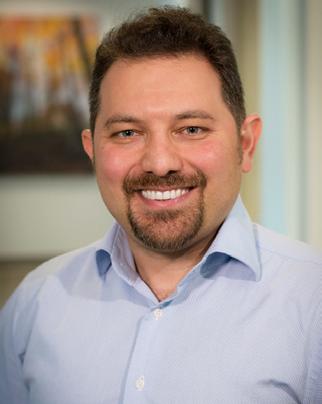
Helping people choose the right mobile health app
Occupational therapist Peyman Azad Khaneghah started his PhD at the University of Alberta determined to create a mobile app to help patients spot signs of depression and other mental illnesses.
With more than 300,000 health apps already on the market, he soon realized that what people might need more is help sorting through this often confusing array of offerings.
So Dr. Azad Khaneghah created an app rating system, which he’s refining and putting online as part of a project funded by AGE-WELL, with non-monetary support from the Organization for Bipolar Affective Disorders.
It’s all about giving app users, family caregivers and health-care providers the tools to ask the right questions when they’re looking for an app, says Dr. Azad Khaneghah, an AGE-WELL trainee who is now a postdoctoral fellow at the University of Waterloo.
“It’s not a game. It’s an app that you’re going to use to get health benefits,” he explains. “So we need to be cautious about the decisions we make.”
It’s easy to focus on the “superficial” features, such as an app’s appearance, while overlooking potentially serious drawbacks. Many apps have privacy and security flaws, make unsubstantiated health claims or may be produced by untrustworthy developers, he says. Other mobile apps may cost a lot, while offering minimal or untested benefits.
“Most of these apps haven’t been backed with clinical data or research,” he points out.
The new rating system—dubbed the Alberta Rating Index for Apps (or ARIA)—is a two-step process that guides people as to what to look for, both before downloading an app and while using it.
Dr. Azad Khaneghah believes the system, developed under the leadership of Dr. Lili Liu at the University of Waterloo, is more important than ever because of COVID-19 and the toll it can take on mental health.
The goal is to get the web-based rating system online in early 2021, creating a crowd-sourced repository of mobile health apps where users can see summaries of available ratings. z
Trainee Profiles
Benett Axtell
Creating digital connections
Benett Axtell believes photographs can play a role in easing the social isolation experienced by some older adults.
That’s why Axtell is developing a novel technology called PhotoFlow. It’s a digital application that combines picture organization and oral reminiscence. As users are prompted to talk about their memories of images displayed on a tablet screen, automatic speech processing captures their words—like “beach” or “bonfire”—and links similar images digitally. This makes it easy for users to locate images using key words—and to show them to others.
“The technology brings browsing, reminiscing and organizing pictures together in a simple, digital—and social—process,” explains Axtell, a doctoral student who works on PhotoFlow with Dr. Cosmin Munteanu, co-director of University of Toronto’s TAGlab (Technologies for Aging Gracefully).
Axtell is excited by the potential of emerging applications like digital storytelling to enhance social connectedness and improve quality of life for seniors.
A native of Vermont with a BA from Smith College in Massachusetts, Axtell is now associate director of TAGlab, a role that involves overseeing technology transfer. The skills and experience gained as an AGE-WELL trainee helped open the door to this position, says Axtell.
PhotoFlow could hit the market in 2021. z
